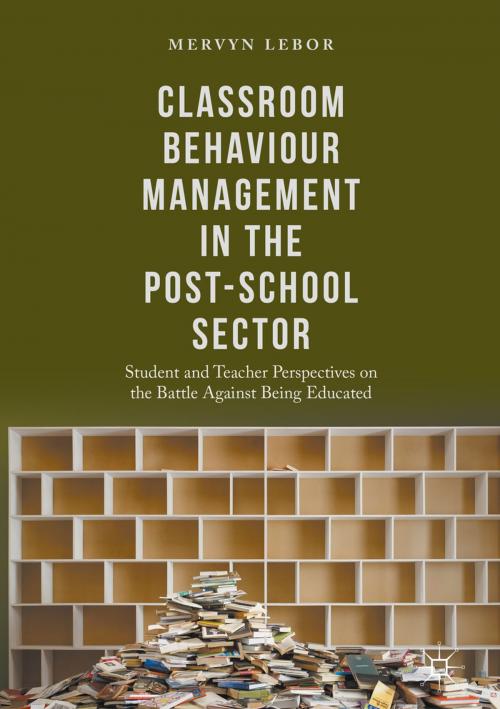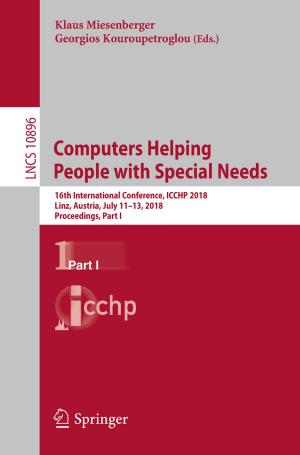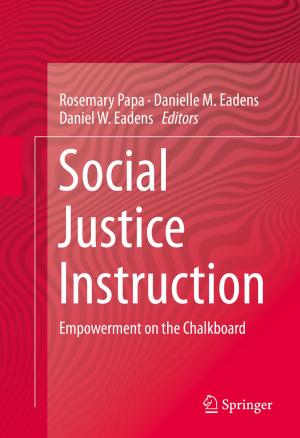Classroom Behaviour Management in the Post-School Sector
Student and Teacher Perspectives on the Battle Against Being Educated
Nonfiction, Reference & Language, Education & Teaching, Educational Theory, Adult & Continuing Education, Educational Psychology| Author: | Mervyn Lebor | ISBN: | 9783319570518 |
| Publisher: | Springer International Publishing | Publication: | July 30, 2017 |
| Imprint: | Palgrave Macmillan | Language: | English |
| Author: | Mervyn Lebor |
| ISBN: | 9783319570518 |
| Publisher: | Springer International Publishing |
| Publication: | July 30, 2017 |
| Imprint: | Palgrave Macmillan |
| Language: | English |
This book listens to the voices of post-school teachers, managers, theorists, trainees, teacher educators and students talking about the battle against being educated. It analyses models of classroom behaviour management, with examples of theory critiquing practice and practice criticizing theory. The contextual pressures of manageralism, demands imposed by Ofsted, economic survival for institutions based on student numbers, and mandatory attendance requirements have all meant ever-increasing pressures on teachers dealing with students’ violent, disruptive and challenging behaviours, resulting in some highly disordered classrooms in many institutions. Lebor examines the attitudes of stakeholders, including disruptive students, teachers, trainees and managers, and explores a range of issues such as entering the classroom, abuse of computers and technology equipment, overt violence in classrooms, and counter-productive assessment processes, as well as exploring a range of available solutions to the problem. The book will be compelling reading for teachers, teacher educators, trainees, policy-makers, managers in education, but also anyone interested in education and training.
This book listens to the voices of post-school teachers, managers, theorists, trainees, teacher educators and students talking about the battle against being educated. It analyses models of classroom behaviour management, with examples of theory critiquing practice and practice criticizing theory. The contextual pressures of manageralism, demands imposed by Ofsted, economic survival for institutions based on student numbers, and mandatory attendance requirements have all meant ever-increasing pressures on teachers dealing with students’ violent, disruptive and challenging behaviours, resulting in some highly disordered classrooms in many institutions. Lebor examines the attitudes of stakeholders, including disruptive students, teachers, trainees and managers, and explores a range of issues such as entering the classroom, abuse of computers and technology equipment, overt violence in classrooms, and counter-productive assessment processes, as well as exploring a range of available solutions to the problem. The book will be compelling reading for teachers, teacher educators, trainees, policy-makers, managers in education, but also anyone interested in education and training.















